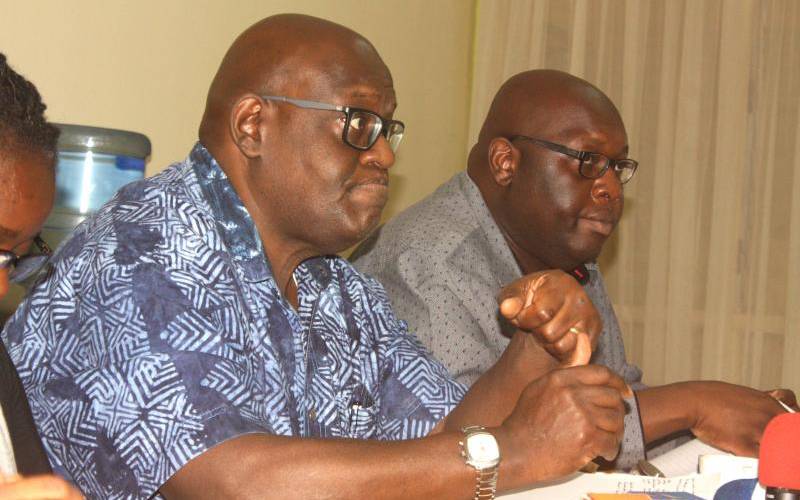
Inuka Kenya CEO John Githongo (left) addresses press conference alongside Kura Yangu, Sauti Yangu James Gondi on Wednesday 06 2017 regarding the arrest of David Ndii. He was ordered by the court to pay former minister Chris Murungaru Sh27 million for defamation. [David Njaaga,Standard]
In her book; “Being Wrong”, Kathryn Schulz emphasises that ‘a whole lot of us go through life assuming that we are basically right, basically all the time, about basically everything: about our political and intellectual convictions, our religious and moral beliefs, our assessment of other people, our memories, our grasp of facts. As absurd as it sounds when we stop to think about it, our steady state seems to be one of unconsciously assuming that we are close to omniscient.’